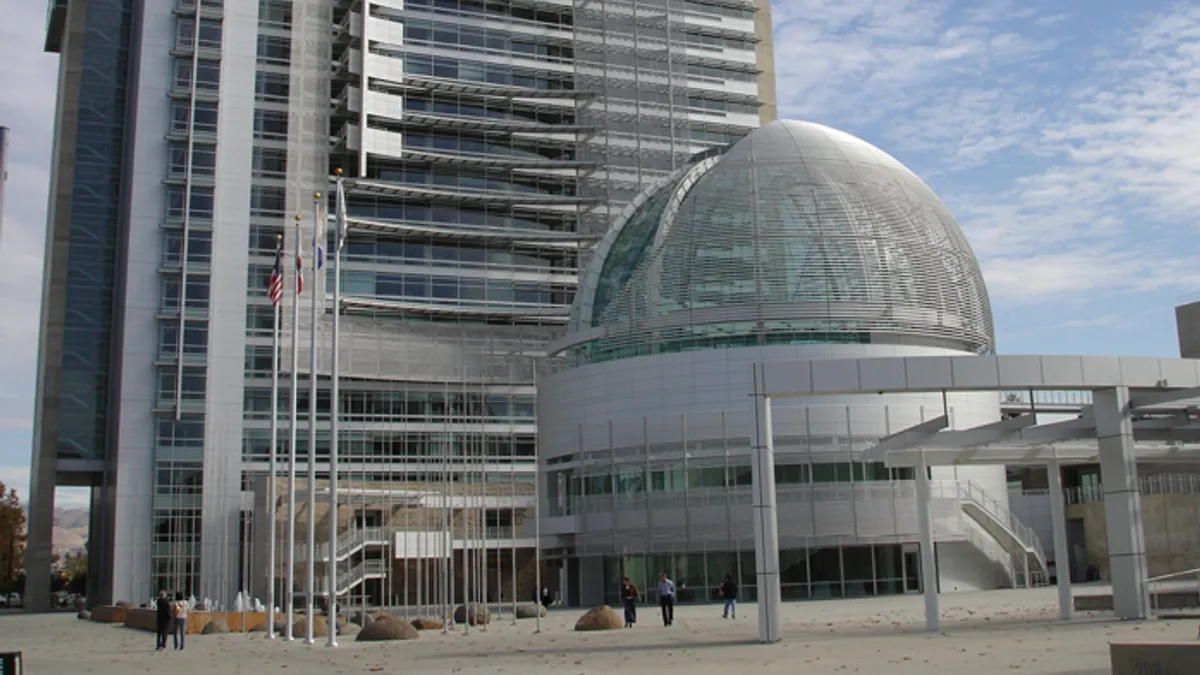Dive Brief:
- San Jose on Tuesday adopted new codes that require buildings constructed in 2020 and later to be all-electric, an aggressive move that efficiency advocates say a growing number of cities are considering to fight climate change.
- The unanimous vote by city council means 70% of parking spots in new apartment buildings will need to be capable of having electric vehicle charging infrastructure installed. The new ordinance also aims to reduce solar and storage costs, and encourage use of more efficient appliances.
- San Jose is now the largest city to adopt all-electric building codes, according to the Natural Resources Defense Council. California cities are leading the way on electrification: In July, the Berkeley City Council unanimously voted to ban natural gas infrastructure in new low-rise residential buildings, also beginning in 2020.
Dive Insight:
A growing number of municipalities are turning to building codes and other local requirements to reduce greenhouse gas emissions, and observers say the trend is likely to accelerate.
"This is definitely a movement," Pierre Delforge, an NRDC senior scientist, told Utility Dive. "This is one way cities can take their fate into their own hands."
Delforge said the growing interest in electrification of buildings and transportation is a sign local governments are reacting to a lack of action at the federal level. The Trump administration has been working to weaken energy efficiency requirements and standards, and this week announced it would block California's stricter vehicle emission standards.
Mayors of dozens of U.S. cities committed to greenhouse gas emissions reductions after the Trump administration withdrew from the Paris climate accord and repealed the Clean Power Plan, which aimed to reduce emissions from the electric power sector.
"We do expect this is the kind of climate action that cities can own," said Delforge. "At a time when the federal government is trying to repeal climate polices, cities are stepping up and doing their own thing."
Berkeley's legislation also requires all new buildings to be "electric-ready," with wiring in place to support electric infrastructure. Los Angeles' new sustainability plan aims for new buildings to be zero-emission by 2030. Other California cities, including Santa Monica and San Francisco, are also considering ordinances covering new construction.
A quarter of California's greenhouse gas emissions come from buildings, according to NRDC. But the building electrification trend extends outside of California. NRDC is working with dozens of cities interested in implementing similar policies. Seattle, for example, has considered requirements for buildings to be equipped for EV charging, and is working to also make buildings more efficient.
"We need a holistic approach," said Delforge. "In a sense, this is very similar to transportation electrification. ... There is a a lot of talk about building electrification being the next clean energy frontier. Electrification of transportation has set a model."














